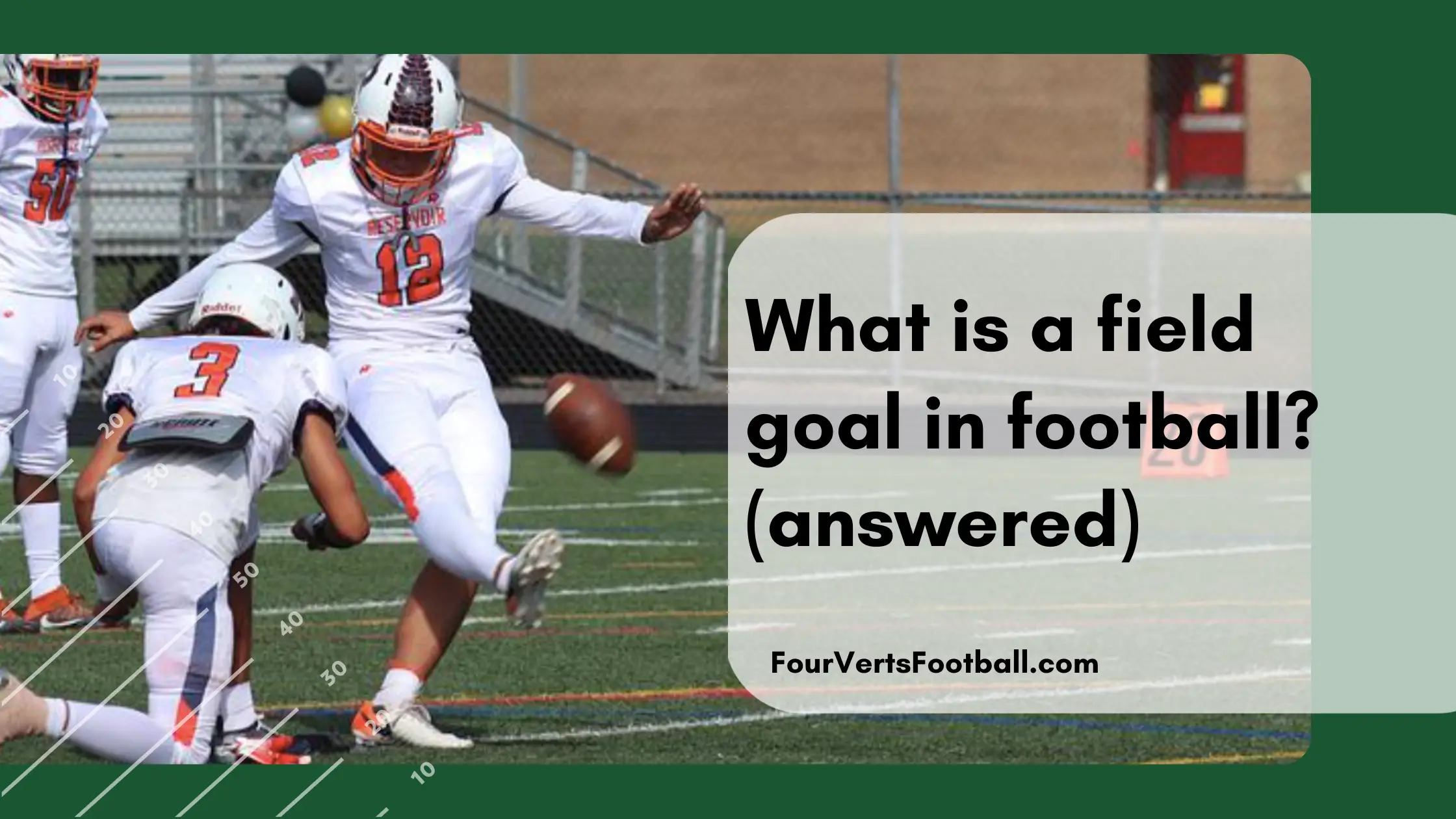A field goal in football occurs when the offensive team kicks the football through the uprights located in the back of the endzone.
A field goal in football is worth three points and is the second-highest scoring play in the game. Teams will generally kick a field goal when they have gotten close to their opponent’s endzone yet not close enough to score a touchdown.
How does it work
Field goals involve a separate group of players from the offense. On field goals, there will be a designated holder, kicker, and long snapper.
Since field goals are kicked further back from line of scrimmage than most plays a long snapper will be used to throw the ball back further to start the play.
The holder will catch the ball and place it down on the ground so the kicker can make contact. The kicker will take a few steps and then kick the ball between the uprights.
In front of the kicker will be a wall of blockers who have the job of buying the kicker time to make his kick.
The defensive players will try to get through these blockers in hopes of blocking the kick before it gets through the uprights.
Blocked/Missed Field Goals
Now that you know how successful field goals work you may be wondering what happens if they go wrong.
Missed field goals
Missing a field goal in football is going to result in a loss of possession of the football. Regardless of what down you attempt the field goal on, missing it will give the opposing team possession of the ball.
Additionally, the opposing team will get possession of the ball from the location where the field goal was attempted.
This means if you miss a field goal near midfield the opposing team will get possession of the ball near midfield.
This can make long-range field goals a little riskier as they can give your opponents great field position if you miss.
Blocked field goals
Blocked field goals also present a large problem for the offense. When a field goal is blocked both teams may have a chance to recover it.
If a field goal is blocked and it passes the line of scrimmage only the defending team can recover the ball and return it. If the blocked kick does not make it past the line of scrimmage either team can return it.
If the offense is able to recover a blocked kick and carry it past the first down marker they will maintain possession of the ball. Otherwise, the defense will get possession of the ball whether they recover it or not.
Blocked field goals are often returned for touchdowns by the defense due to the lack of offensive players in the backfield and the momentum of the defensive team heading towards their opponent’s endzone.
Icing the kicker
Another piece of information you want to know about field goals is the action of icing the kicker.
In football, field goals are often going to come at the most clutch moments in the game. This means the pressure is going to be on the kicker’s shoulders.
Football coaches know this and use the tactic of calling timeouts right before the kicker attempts the field goal. Calling a timeout at this moment will force the kicker to wait another thirty or so seconds before he can attempt the kick.
The idea is that giving the kicker extra time to think about this kick will throw him off and cause him to miss.
The effectiveness of icing the kicker on field goals is not very high yet many coaches still follow this strategy at the highest levels of professional football.

